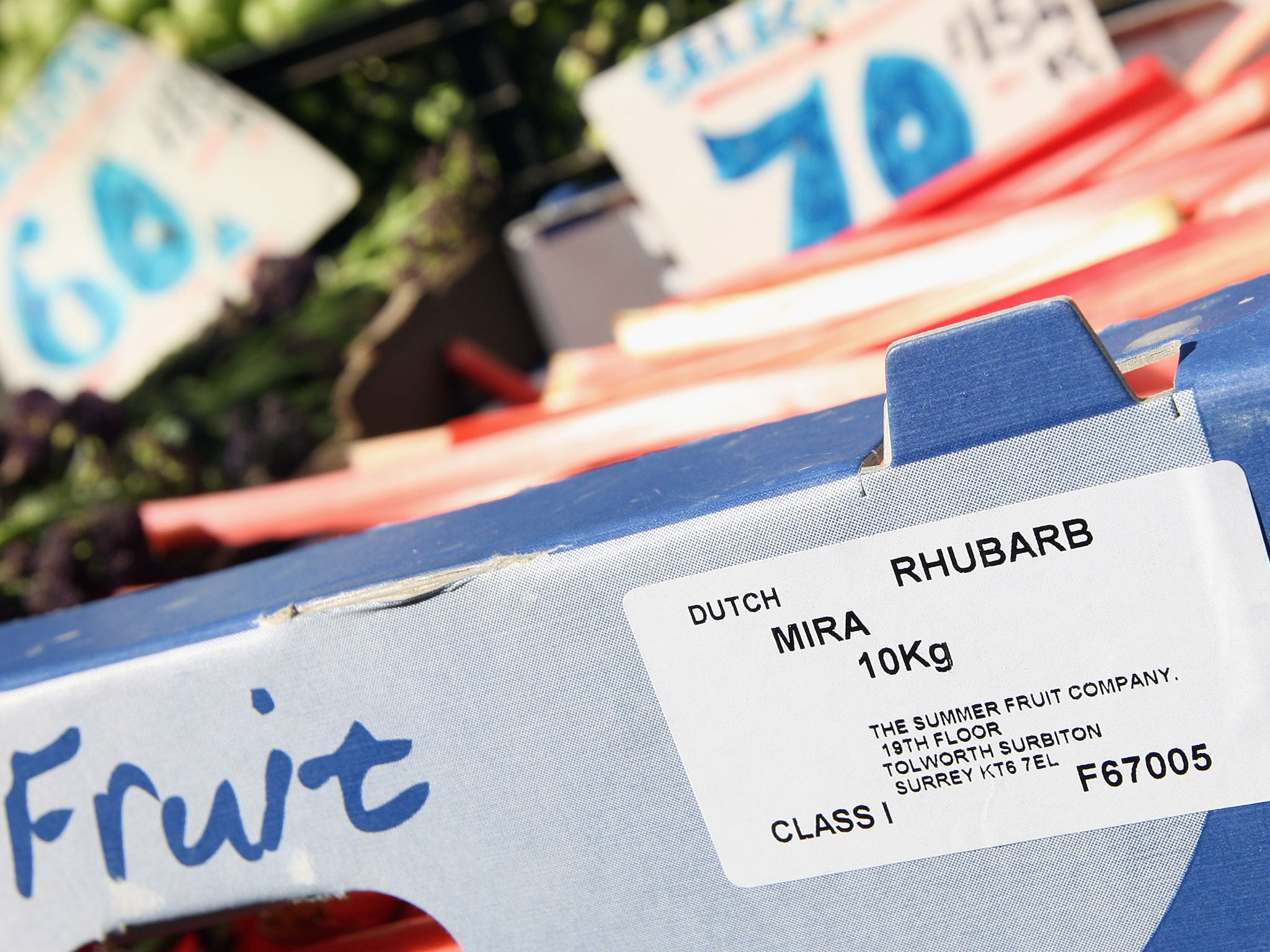Britain's food self-sufficiency at risk from reliance on overseas imports of fruit and vegetables that could be produced at home

Your support helps us to tell the story
From reproductive rights to climate change to Big Tech, The Independent is on the ground when the story is developing. Whether it's investigating the financials of Elon Musk's pro-Trump PAC or producing our latest documentary, 'The A Word', which shines a light on the American women fighting for reproductive rights, we know how important it is to parse out the facts from the messaging.
At such a critical moment in US history, we need reporters on the ground. Your donation allows us to keep sending journalists to speak to both sides of the story.
The Independent is trusted by Americans across the entire political spectrum. And unlike many other quality news outlets, we choose not to lock Americans out of our reporting and analysis with paywalls. We believe quality journalism should be available to everyone, paid for by those who can afford it.
Your support makes all the difference.Britain is jeopardising its food security by relying on vast imports of fruit and vegetables from abroad that could be produced in this country, a new report warns today.
The UK’s “self-sufficiency ratio” – which measures the percentage of indigenous food produced compared to imported food - shows a decline from a peak of almost 87 per cent in the early 1990s to just 68 per cent in 2012.
Even in the peak growing season the UK still imports over 30,000 tonnes each of onions, tomatoes and apples every month. In May last year Britain imported nearly 20,000 tonnes of cauliflower and broccoli, while in April Britons bought over 50,000 tonnes of potatoes from overseas.
The UK has a self-sufficiency ratio for fresh fruit and vegetables of just 12 per cent and 58 per cent respectively, and imported £8bn of fruit and vegetables in 2012.
In its report, the House of Commons Environment, Food and Rural Affairs Committee warned that while the UK needed a diversity of supply, consumers could be vulnerable to factors outside the Government’s control if the trend continued.
“The UK is currently 68 per cent self-sufficient in foods which can be produced here,” the report said. “There has been a steady decline in this level over the last 20 years and levels of self-sufficiency in fruit and vegetables has fallen the most.
“While the UK may be food secure at present, it would be unwise to allow a situation to arise in which we were almost entirely dependent on food imports given future challenges to food production arising from climate change and changing global demands.”
The report also expressed concern that Britain’s livestock and dairy industry was heavily dependent on imported soybean for animal feed, which is likely to be affected by growing demand from China, India and parts of Africa.
“In view of the significant strategic risk and cost the UK is exposed to in relation to its animal feed imports, the Government needs to put in place a plan for alternative animal feed for the livestock and dairy sectors,” the report concluded.
The Environment Secretary Owen Paterson has already called for a growth in home grown fruit and vegetables that he said would be both “help the environment and boost the economy”.
But Government efforts to increase production have been constrained by intense competition in supermarkets where price is a far bigger motivating factor than country of origin.
The report said more effort should be made to increase the UK growing season using such models as Thanet Earth, a large greenhouse complex in Kent, which now produces about one third of Britain's cucumbers and tomatoes.
“There are opportunities to extend the seasonal production of non-tree crop fresh fruits and vegetable products,” the report added.
“We would like to see a more coordinated and positive approach by retailers, the Agricultural and Horticultural Development Board and local and central Government to examine ways to encourage greater domestic production in these sectors.”
Anne McIntosh, Chair of the committee, said she was concerned that there was too much “complacency” in Whitehall about the threat facing the UK.
“Complacency is a genuine risk to future UK food security,” she said. “If we want our food production and supply systems to be secure, Government and food producers must plan to meet the impacts of climate change, population growth and increasing global demand for food.”
A Defra spokesperson insisted that it was not complacent about food security.
“This report recognises that the UK maintains a high level of food security,” they said.
“We invest £450m each year to uphold it however, we are not complacent which is we why are committed to continuing to deliver on the recommendations of the Foresight report into the future of food and farming both across Government and internationally. We are confident our efforts in this area will help us meet future demand for food.”
Join our commenting forum
Join thought-provoking conversations, follow other Independent readers and see their replies
Comments